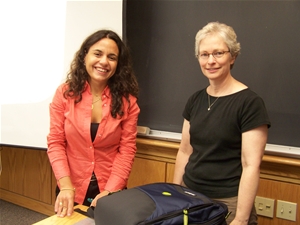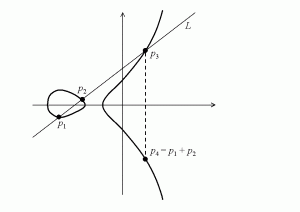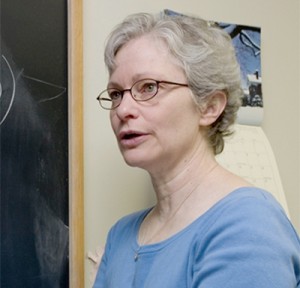Title: Learning from systematic descriptions of mathematics professional development
Abstract: In this talk I present emerging results from a systematic
review of publications on mathematics professional development. The
research team reviewed over 170 papers published between 1992 and 2010
to address the following research questions: What do we know about the
design and conduct of mathematics PD being studied by researchers and
how are these PD characterized in research reports? The conceptual
framework included six elements: theory, context, goals, content,
format, and activities.


